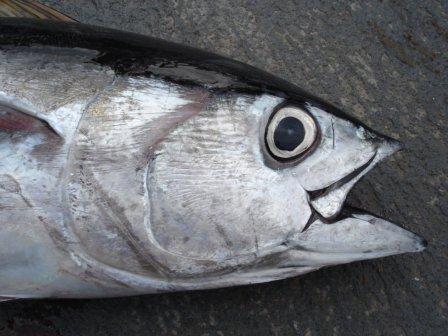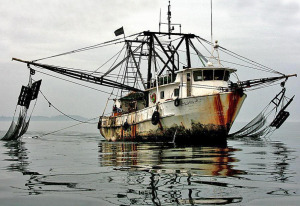The untold story of fishing: Illegal, unreported, and unregulated

By Jonathan Simmons
Ahhhhhh fishing. One of the world’s most ancient traditions used to catch the finest fly of the day, reel in that big bass to show to your buddies, or simply get away from all the stress in life by chilling with a line in water, feet kicked up, sun beaming, and a nice smooth breeze in the background. Oh yes, the joys of fishing, what could be better, what could ever go wrong? I mean think about it, there are so many fish in the world and so much water we may never run out. Surely every person in every town has got to get their fair share of fish with then some to spare. Fishing has got to be the unspoken renewable resource that we never learned about in our third grade social sciences class; there is too much water and too much fish for anyone to ever worry; the world has bigger fish to fry you might say, no pun intended.

Well as nice of a picture that was painted about fishing in the previous paragraph there is this small, tiny, tiny problem that different communities across the world are facing. You ready? It’s called Illegal Unreported and Unregulated Fishing (IUU) and it’s not so much of a small problem as much as it is a $23 billion U.S. dollar worldwide problem as reported by the United Nations Food and Agriculture Organization’s Fisheries and Aquaculture Department. IUU can be explained as “a global problem that threatens ocean’s ecosystems and sustainable fisheries. IUU products often come from fisheries lacking the strong and effective conservation and management measures … IUU fishing most often violates conservation and management measures, such as quotas or bycatch limits, established under international agreements.”

Okay, I get what you’re probably thinking: so what; some people are breaking some pointless laws that don’t really do much; fishing is still a never ending well that will never dry up; we’re likelier to find Atlantis before we ever consider that there is problem with the fish in the sea. Well, okay, I see where you would be coming from but, there is the little thing they got over in Europe called the European Commission that tends to think differently. The EC thinks that IUU “depletes fish stocks, destroys marine habitats, distorts competition, puts honest fishers at an unfair disadvantage, and weakens coastal communities, particularly in developing countries.”
Wow that sounds pretty damning. The EC also has some buddies known as the European Union who since 2010 has threatened to blacklist certain states whose actors decide to engage in IUU activities. “Hey maybe this IUU thing is a bit bigger deal then I thought,” you might be thinking, “The little guy is getting stomped and is put at an unfair advantage while the oceans ecosystems are being threatened. Maybe I’m not such a big fan.”
Let’s break it down and get to the point of this issue. Fishing is awesome, it’s great, and it’s something everyone should have the opportunity to do. With that being said we should also consider every time we fish the methods we use to catch fish and if we are harming the ecosystem by fishing too much sometimes. IUU is significantly harming rural coastal fishing towns across the world as these fishers can’t keep up with other actors who cross state lines to fish and simply have much better equipment. We should think about this next time we indulge in some seafood on a Sunday night as the National Oceanic and Atmospheric Administration reports that 90% of U.S. seafood is imported. Maybe it’s important then to give pause and trace the trail of who is disadvantaged globally by seafood jumping on the barbecue and into our bellies. Just keep in mind the reality that we can’t be naïve anymore– that over fishing, and fishing out of one’s jurisdiction, do have big consequences to small actors and the ecosystem. It is a fact we cannot ignore.
 Jonathan Simmons is a student in John Jay College of Criminal Justice Master’s of Art in International Crime and Justice Program and serves as the program assistant and peer advisor. He earned a bachelor’s degree from Gannon University in Erie, Pennsylvania, in Criminal Justice and Political Science, and was a part of the school’s Division II NCAA soccer team. Simmons twice received the Division II NCAA Athletic Directors Academic Achievement award. He is also working on two diplomacy labs for the U.S. Department of State this academic year – one that focuses on wildlife poaching and trafficking, specifically of megafauna and fish, and the other centers on gender-related crime in post-conflict/transition countries with a primary focus on Afghanistan, Costa Rica, and the Dominican Republic.
Jonathan Simmons is a student in John Jay College of Criminal Justice Master’s of Art in International Crime and Justice Program and serves as the program assistant and peer advisor. He earned a bachelor’s degree from Gannon University in Erie, Pennsylvania, in Criminal Justice and Political Science, and was a part of the school’s Division II NCAA soccer team. Simmons twice received the Division II NCAA Athletic Directors Academic Achievement award. He is also working on two diplomacy labs for the U.S. Department of State this academic year – one that focuses on wildlife poaching and trafficking, specifically of megafauna and fish, and the other centers on gender-related crime in post-conflict/transition countries with a primary focus on Afghanistan, Costa Rica, and the Dominican Republic.